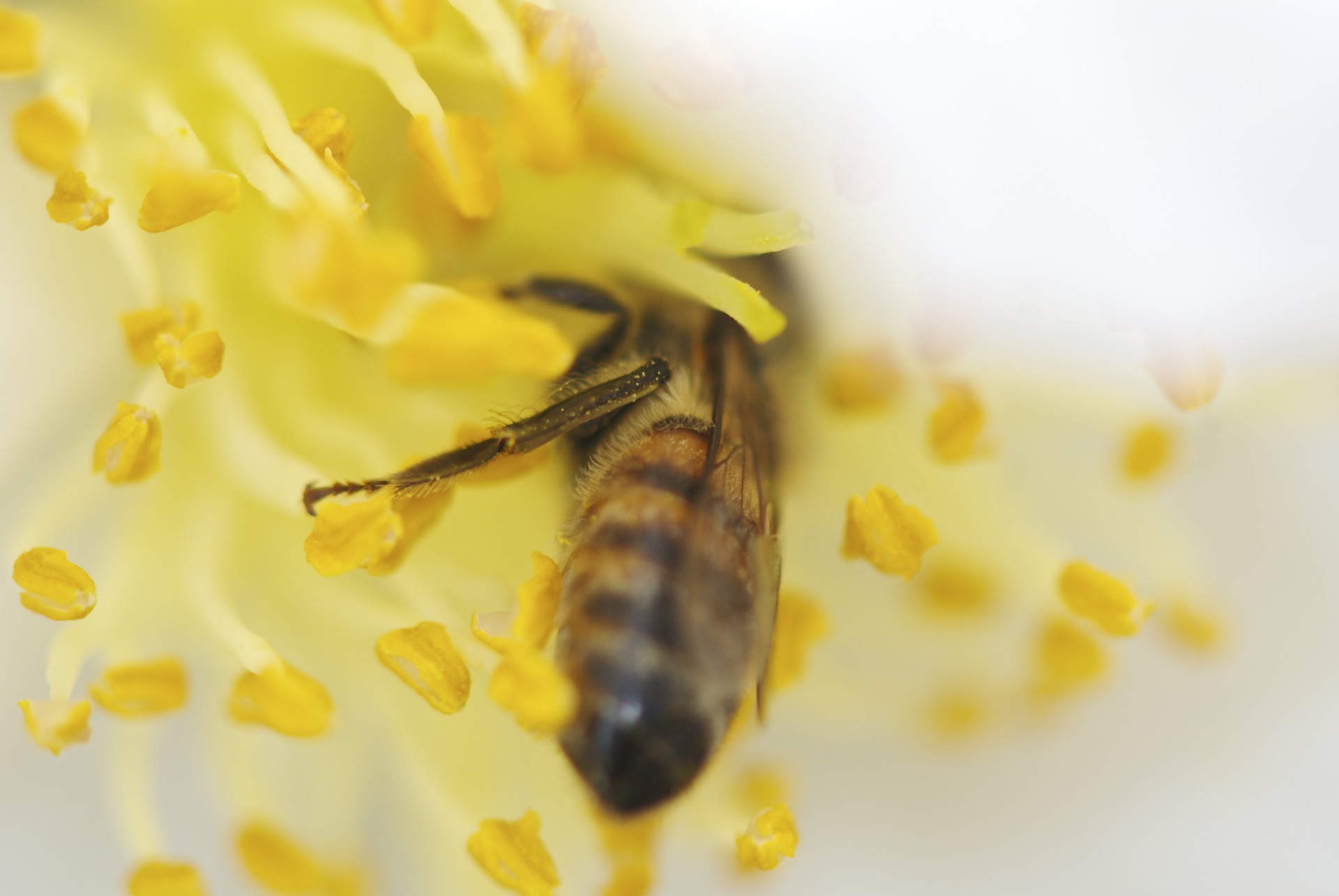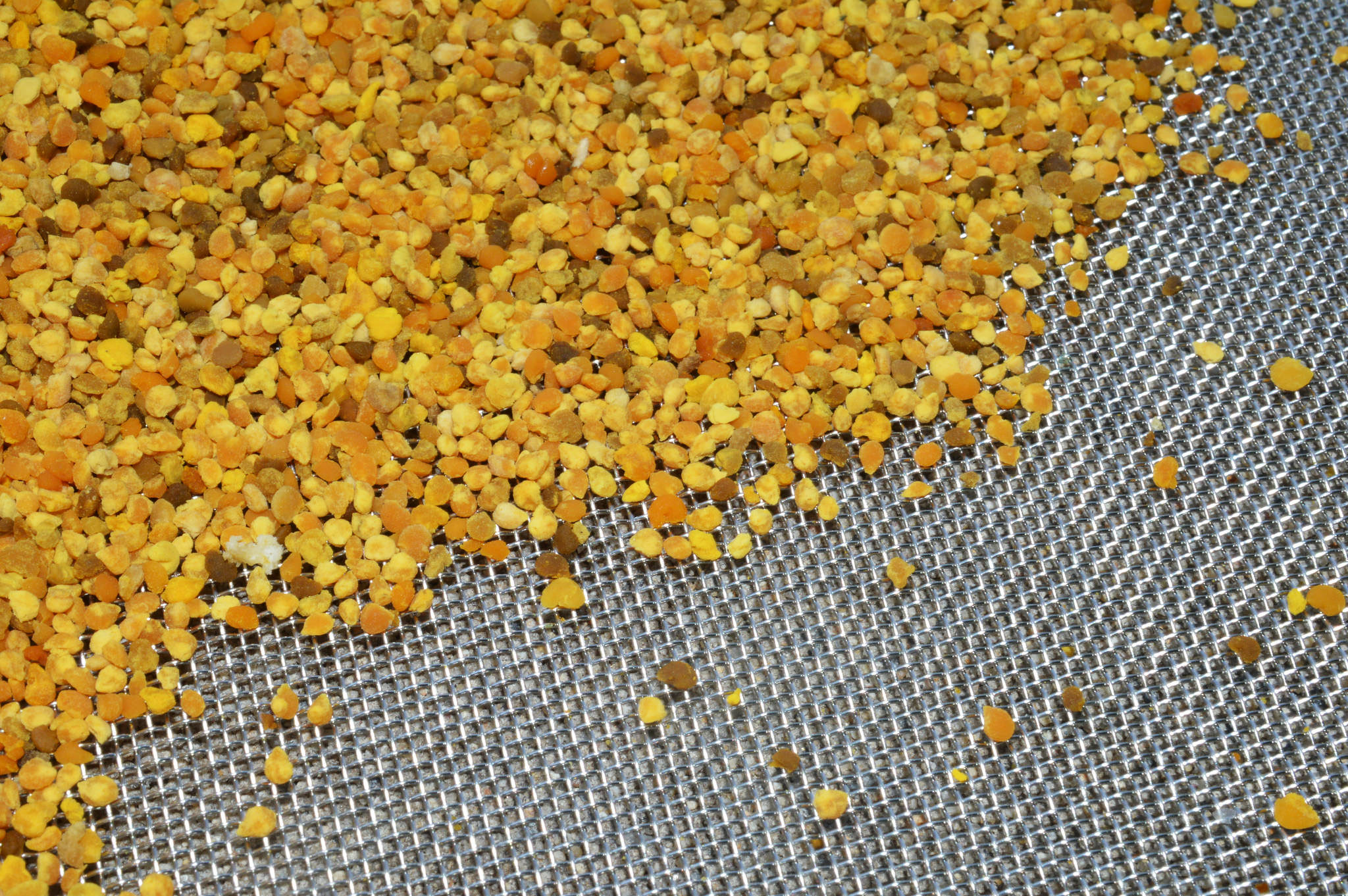Using Bee Pollen For Allergy Relief
Bee Pollen has long been used by health practitioners and natural wellness fanatics as an alternative to pharmaceutical allergy medicine, which often make users feel jittery, tired, or lethargic. As the original garden-sourced superfood, Bee Pollen is also one of the most nourishing substances on the planet, with a full profile of nearly all nutrients that humans require: proteins, amino acids, vitamins, minerals, and more.
I first heard about the health benefits of Bee Pollen when I developed seasonal allergies at the age of 21 and a local farmer told me that bee products were a great antidote to the sneezing and itchy, watery eyes often associated with excess pollen in the air. The idea is that when bees metabolize pollen (the antigen that makes us sneeze), they actually transform it into the antidote that helps relieve allergic reactions by reducing the presence of histamine in the body.
In the same way that a vaccine is really a small dose of the very virus that makes us sick, Bee Pollen works to lesson allergy symptoms by slowly acclimating our bodies to the substances to which we are allergic. Years ago, I started supplementing my diet with bee pollen– sprinkling a few kernels into a smoothie or over cereal where I wouldn’t notice the taste– and soon found that my allergy symptoms abated significantly. It wasn’t a perfect cure-all, but the relief was almost immediate.
Around that time, I also read that famed holistic wellness guru, Dr. Joseph Mercola, recommended bee pollen as an immunity booster, because it has antiviral properties and tons of antioxidants, which help protect the body from the damaging effects of free radicals. One teaspoon of bee pollen contains over 2.5 billion grains of flower pollen that can also help correct specific nutrient imbalances in the body and support healthy gut flora.
Since then, I’ve made a habit of patrolling farmers markets for high-quality, locally-sourced bee pollen every spring (the specific chemical makeup of local bee pollen changes each season in response to what’s in bloom) and I’ve done a ton of research about the health benefits of bee pollen, which is a recommended dietary supplement for anyone interested in improving their own health. My evidence is anecdotal, but there’s a reason why bee pollen has been popping up as a listed “immunity booster” at juice bars and natural food stores across the country. Here’s what you need to know about bee pollen:
Bee Pollen Is One of Nature’s Most Complete Foods
Bee pollen is made by honeybees as a food source for young bees. Typically sold in small, golden, pepper-corn sized granules, a teaspoon of bee pollen contains 59 trace elements, 25 minerals, 22 amino acids, 18 vitamins (including the elusive B complex), 14 fatty acids, 11 enzymes and co-enzymes, 11 carbohydrates, and up to 40% protien. Bee Pollen is richer in protien than any other animal source, with more beneficial amino acids than beef, eggs, or cheese of equal weight.
It Is An Excellent Supplement For Allergy Relief
Bee pollen reduces the presence of histamine in the body, which is a helpful way to soothe asthma, allergies, sinus problems, and other respiratory ailments. Bee pollen also has an anti-inflammatory effect, which can help calm autoimmune reactions.
A Little Goes A Long Way
Allergy experts reccommend starting with only a few granules of bee pollen– like 2 or 3 grains– if you’ve never taken it before. Drink with water or any other liquid and wait 1 hour to make sure you don’t have an allergy reaction. (Most people don’t, but you should always be cautious before supplementing with a new product.) Going forward, 1 teaspoon a day of bee pollen is sufficient to help reduce allergy symptoms. I start each day by sprinkling it in a green juice, but it also goes well with virtually any other food (yogurt, smoothies, oatmeal, etc). Just don’t put bee pollen in super-hot liquid like tea, because the heat will denature many of the nutrients and destroy the bee pollen’s super-potent antiviral properties.
There’s A Host of Other Health Benefits
The specific nutrient profile of bee pollen make it a great energy enhancer and digestive aid. Denver-based health guru Dr. Gabriel Cousens, M.D., recommends it as one of the 22 best natural energy sources, because it can help correct hormone imbalances and nutritional deficiencies in the body. Bee pollen also contains high amounts of Rutin, an antioxidant bioflavonoid that helps strengthen capillaries and blood vessels while restoring healthy cholesterol levels. It’s potent anti-clotting capacities also help bolster the Cardiovascular System, which ultimately improves your system’s ability to metabolize the nutrients it needs for health and vitality. Meanwhile, evidence shows that Bee pollen also helps restore ovarian function in women and reduces the inflammation caused by benign prostate hyperplasia in men. And regardless of gender, it’s also supposedly an aphrodisiac.
It Can Even Be Used Topically
If you’re not already sold on taking bee pollen internally, try seeking it out in your skin regime. Bee pollen is often used in personal care products that treat inflammatory skin conditions like psoriasis and eczema. With 22 amino acids to its credit, bee pollen protects the skin and assists in the regeneration of cells– beauty on the inside and out.




































